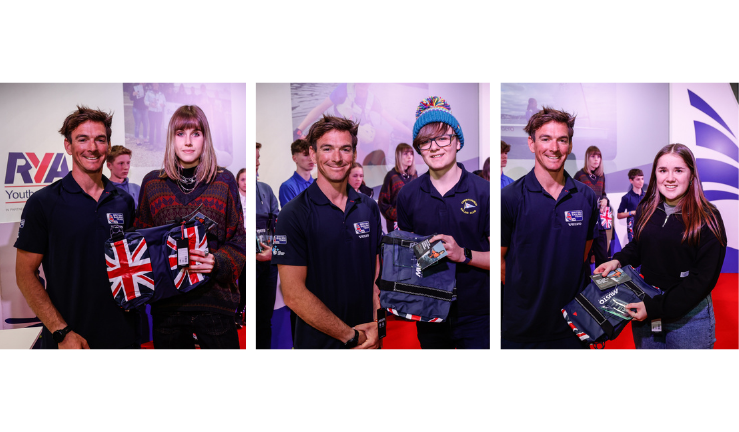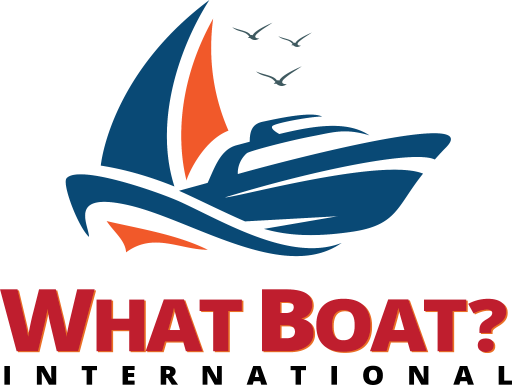
1. Tell us about your career – what does your usual day look like?
I currently work at Belfast harbour as a pilot boat assistant coxswain / coxswain. A pilot boat is a type of boat used to transport maritime pilots between land and the inbound or outbound ships that they are piloting.
A typical day shift will start with rolling over to stop the alarm at around 0400 and then a check of the weather forecast. When I arrive to work, I read through the previous shift’s handover sheet over a cup of coffee, then head down to the boat to complete pre sea checks. Most of this is very similar to what we would teach during RYA level 2 courses, visual checks for debris, lifesaving equipment, radio check etc. We would also check the engines and gearboxes and I found the RYA Diesel engine course I attended years ago still helps with this process.
There are many different factors I must be aware off when leaving the birth. For example, wind speed and direction will affect what side I will come alongside the ship and whether or not I will need to ask the ship to alter course to create a lee (the pilots don’t like getting wet!). I also need to be aware of the state of the tides, any restrictions in the harbour and of course any traffic in the harbour or channel that might affect us. To gather this information, we can use our instruments and tide tables etc but most importantly we use our VHF radio to contact Belfast VTS and other ships in the area. It is vital that we maintain contact with a ship that we are about to come along side for safety reasons after all we are purposefully having a controlled collision with ships up to 300m, 150000t whilst still moving at around 9knts and often in inclement, windy weather.
Again, an RYA VHF radio course gave me the knowledge and was also a legal requirement to operate the VHF radio onboard.
From there on it’s a case of working out which ships are arriving or departing and at what times and of course which pilot is going to which ship and from what location. This can get a bit tricky when it’s busy due to so many moving parts.
2. Is this a career you always imagined yourself doing?
I was never one of those people that knew exactly what they wanted to do in life right from the get-go. But after having various jobs both indoors and out I knew that a desk job simply wouldn’t do. I always thought I’d end up working with animals or something to do with the sea, but I never thought I’d be driving and working on a pilot boat.
3. How did you work up to this?
As far back as I can remember I’ve always been in or on the water. Most of my youth was spent on Strangford lough where my family are members of Quoile yacht club. Family holidays were not spent in Spain on golden sands in the sun but rather travelling up the west coast of Scotland in the drizzle with my dad promising my mum the sun would come out soon. My dad taught my brother and I how to sail from a young age. My brother took to sailing very well and went on to become a professional sailor but for me sails just weren’t my style. I’ve always been more of a petrol head so any chance I got I was out of the topper and into one of the club’s rescue boats where the love of speed was cemented. This is how I came to gain most of my experience and completed various RYA courses on power boating.
These courses helped me secure a job as skipper on a wooden tour boat in Belfast harbour before ultimately getting a job on the pilot boat. Of course, various MCA licenses and STCW courses were required but I feel what I learned from a young age at the RYA course really helped and gave me a head start.
4. Tell us some of you career highlights?
There are many enviable things about working on water but some of my favourite would be,
Getting to see the sunrise over the horizon as your heading out to the first ship of the day when it’s flat calm.
Getting to go alongside some of these huge cruise ships coming into Belfast and being so close to them, where most people on see them from a few miles away.
I love the variety in our line of work too, yes, 90 percent of the time we are engaged in pilotage operations, but we are regularly tasked to complete other jobs around the harbour,
Tours, Quay inspections, lifting dunnage and acting as an Escort boat to name a few.
5. What would you say is the most challenging aspect of the job?
We face different challenges every day but one that stays constant is not surprisingly the weather. Northern Ireland isn’t known for its good weather and to most the biggest threat is a spoiled barbecue. But to us the weather can be a real safety concern. As fun as it can be out in rough weather, it is one of our biggest challenges. The ships don’t stop coming hail or shine, morning, or night so neither can we. It wouldn’t be uncommon to be out at night in bad weather with swells up to 3m and trying to get a 16.5m pilot boat alongside a ship safely can be a challenge. But after all a bad day on the water is better than a good day in the office!
6. What advice would you give to someone who is considering a career on the water?
One thing I have noticed from my time working on the water is the amount and variety of different jobs there are available. If anyone isn’t sure about what they want to do in life, there is definitely a job on water to suit them. With the help of the RYA and the wide range of courses they offer it makes it all the easier to start a career on the water. Being an island nation, we rely heavily on our seafarers to keep the country running!

